We were lucky to catch up with Holli Kenley recently and have shared our conversation below.
Holli, thanks for taking the time to share your stories with us today Can you open up about a risk you’ve taken – what it was like taking that risk, why you took the risk and how it turned out?
I am a Licensed Marriage and Family Therapist in the state of California. Although I had been treating clients in the areas of abuse and trauma since becoming an intern in 1998, it wasn’t until the fall of 2003 that the issue of betrayal really began to tug at me. I was practicing in a counseling center that had been established at a large church in my community. Over the next six years, I counseled with a steady stream of clients who shared their various narratives of betrayal trauma. Most of them remained stuck even though they were working through their respective recovery programs. As a therapist, I felt frustrated.
In the fall of 2005, I moved into private practice. A growing number of clients entered therapy relating their stories of betrayal. The economy was shifting downward. Clients were losing their jobs, homes, and friends. They were experiencing betrayal of all kinds: financial, professional, and relational. As I listened closely to their painful narratives. I noticed how their betrayals revealed a much deeper inner personal loss – the Loss of Self. This included things like the loss of role and reputation. The loss of identity and innocence. The loss of being heard and of being seen. The loss of voice and of mattering.
During this period of time, betrayal was treated like grief. Afterall, betrayal is an issue of loss. However, the grief strategies I was implementing were not effectively addressing betrayal injury. I consulted with colleagues on their treatment suggestions. Most were utilizing different forms of grief theory. I conducted a thorough search of the literature at the time on recovery from betrayal. Nearly every source focused on the sole issue of infidelity and how to rebuild trust.
Determined to find an effective course of treatment from all kinds of betrayal trauma, I began my own research from 2006- 2008. I reviewed past client cases and paid close attention to my current case load.
Three questions guided my research:
1) What is betrayal?
The purpose of this question was to explore the “scope” of betrayal. I witnessed how clients were presenting with all kinds of betrayal. If I could explain or define betrayal in multiple terms, then I would be able to join with my clients by explaining their pain and they would be able to understand it. This is a key first step in healing.
2) What are my clients feeling? And why?
The purpose of this question what to dig deep and explore what my clients were feeling when they were betrayed. I knew that the kind of loss experienced from betrayal was different from grief. I also believed that my clients were not navigating through the Stages of Grief, as much of the research indicated. I needed to know why. What was it that we did not understand about betrayal injury? I believed that if I could “name my clients’ pain,” and explain its manifestations, this would be a critical next step in their healing.
3) How long and to what degree will my clients feel this way? And why?
The purpose of this last guiding question was to dissect the anatomy of betrayal injury and explore its inner workings and trappings. Often, I was so confused as to why some clients could move through their betrayal injury in a shorter span of time while others were continually slowed or remained stuck. What hope this would provide for clients if I could identify sound principles for supporting their healing and implement tools for getting them “unstuck”.
As the universe would have it, during this time of exploration I experienced a deep betrayal from a family member. It had been brewing for a while, but its final targeted injury towards me crushed the core of my being. Everything I was discovering and uncovering made perfect sense to me. Betrayal was nothing like grief and deserved its own recognition. More importantly, recovery from betrayal injury required a radically different approach. However, I felt a slight hesitation as I thought about how my ideas might be received or possibly rejected.
The field of psychology is referred to as a soft science. New ideas are surfacing all the time! Change is typically welcomed, especially if it advances the cause at hand. But who was I to challenge the normative thinking around how to heal from betrayal? Although I had ten years of experience under my belt, I did not carry the recognition or reputation of many of my esteemed colleagues who had served in the field of psychology for thirty or more years!
Was I brave enough to move forward with my ideas? I was.
Would I take the risk? I did.
In the fall of 2007, I began writing down my findings. As I uncovered answers to my three guiding questions, I tested out my theories with clients. With an empathic Rogerian approach, I joined with my clients by exploring what betrayal is and isn’t. Then, as they navigated through their deeply debilitating feelings, together we identified betrayal’s unique manifestations, which I termed the Three States of Being. Through our safe and trusting therapeutic relationship, we peeled away the trappings of betrayal and explored what was keeping them stuck. In addition, I thoughtfully crafted cognitive behavioral exercises to supplement and support breaking through betrayal injury. I created other activities and assessments designed specifically for recovery from betrayal.
By winter of 2008, I compiled my work into a self-help manuscript – Breaking Through Betrayal: And Recovering the Peace Within.
From taking this risk, the course of my life changed. I expanded my work into the field of psychology through published articles and books. I began speaking and presenting at conferences and workshops. I delivered my ideas on podcasts, radio shows, and on local TV. Over the past fifteen years, I have earned the reputation as a thought- leader in the field of psychology, with a focus on the issue of betrayal.
Four books have been published on betrayal:
1. “Breaking Through Betrayal: And Recovering The Peace” Within (2009, Loving Healing Press, Inc.)
2. “Betrayal-Proof Your Relationships: What Couples Need To Know and Do” (2011, e-book Loving, Healing Press, Inc.)
3. “Second Edition: Breaking Through Betrayal: And Recovering The Peace Within” (2016, Loving Healing Press, Inc.)
4. “Daughters Betrayed By Their Mothers: Moving from Brokenness To Wholeness” (2018, Loving Healing Press, Inc.)
By getting my work on betrayal “out into the public,” I know I have impacted the lives of countless individuals. Over the years, I have received emails, private messages, and written notes from victims of betrayal sharing their stories of despair. And then how they found help and hope through one of my books, podcasts, or workshops, etc.
In 2021, I received this email from one young mother who was considering ending her life:
“I’ve never heard stories like the ones in your book. They made me feel validated, and helped me realize that almost all women felt the same way that I did at some point. It gave me hope that it won’t always feel this way. It helped me realize my trauma and I just wanted to say thank you so much because I feel like I took my first steps to healing because of your project. You have changed so much of my life in such a short period of time and I just thank you so much.”
As a result of taking the risk to share my research and ideas around betrayal trauma, I was invited to speak at TEDxMountRubidoux September 24, 2022. Since my talk Betrayal: The Loss No One Is Talking About, was uploaded onto TED and TED YouTube on October 5th, 2022, to date it has received over 135,000 views, 4 K likes, and nearing 500 comments.
A few include the following:
• I learned more about betrayal and healing in 18 MINUTES than I have my entire life [53 years].
• Out of 1000+ videos I’ve watched and almost 2 years in individual counseling and one year in marital counseling… THIS. This is the best way to look at this experience. Thanks again.
• Exceptional. Profound. Original. Touching. Possessing graceful strength. Hope-giving. Thank you
• Brilliant, brilliant talk! So much wisdom and awareness I don’t know where to begin. Sharing!!!
When I decided to take the risk of sharing my ideas on betrayal, I based it on one thought. If I could help just one person heal from betrayal trauma, it was worth it.
Mission accomplished.
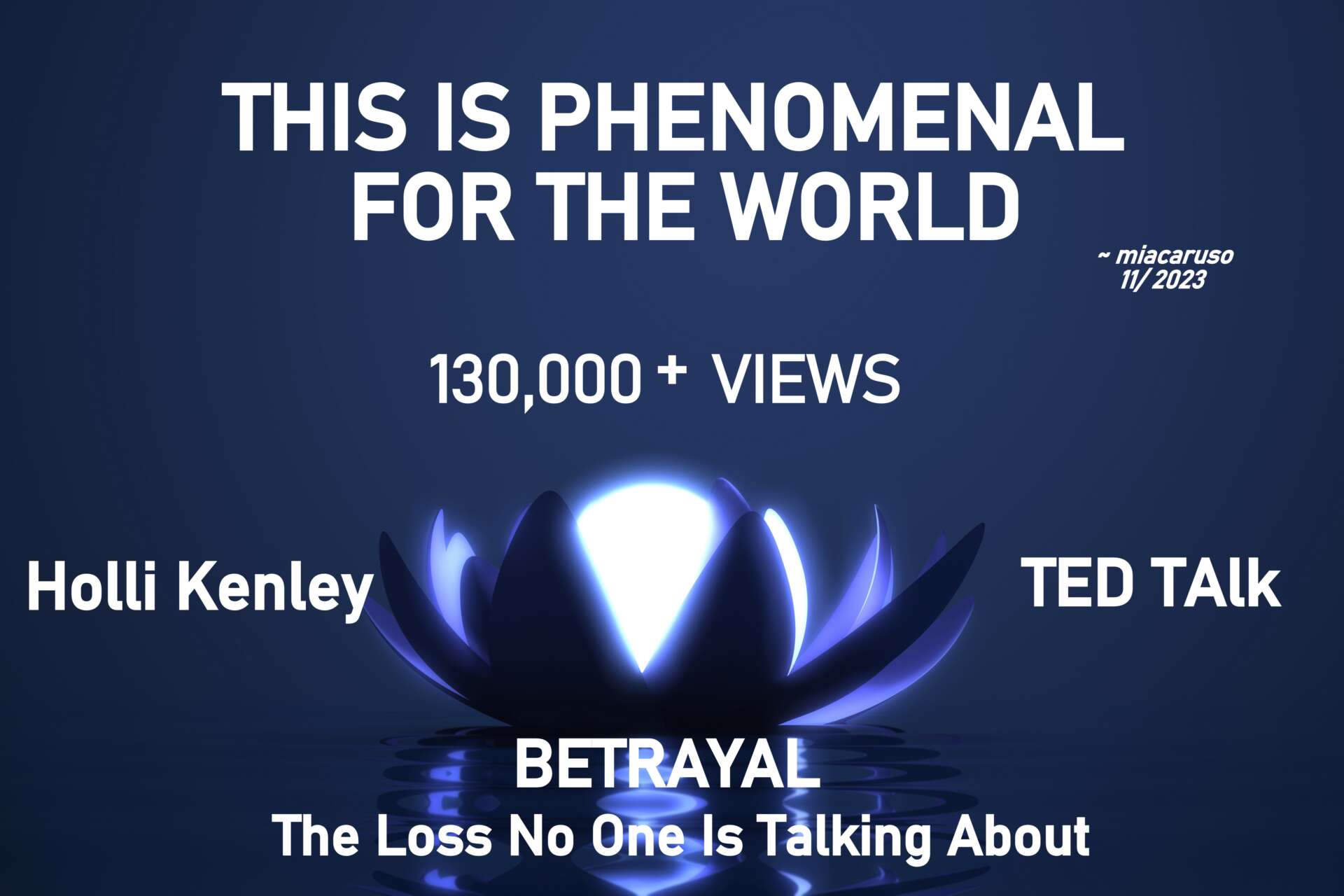
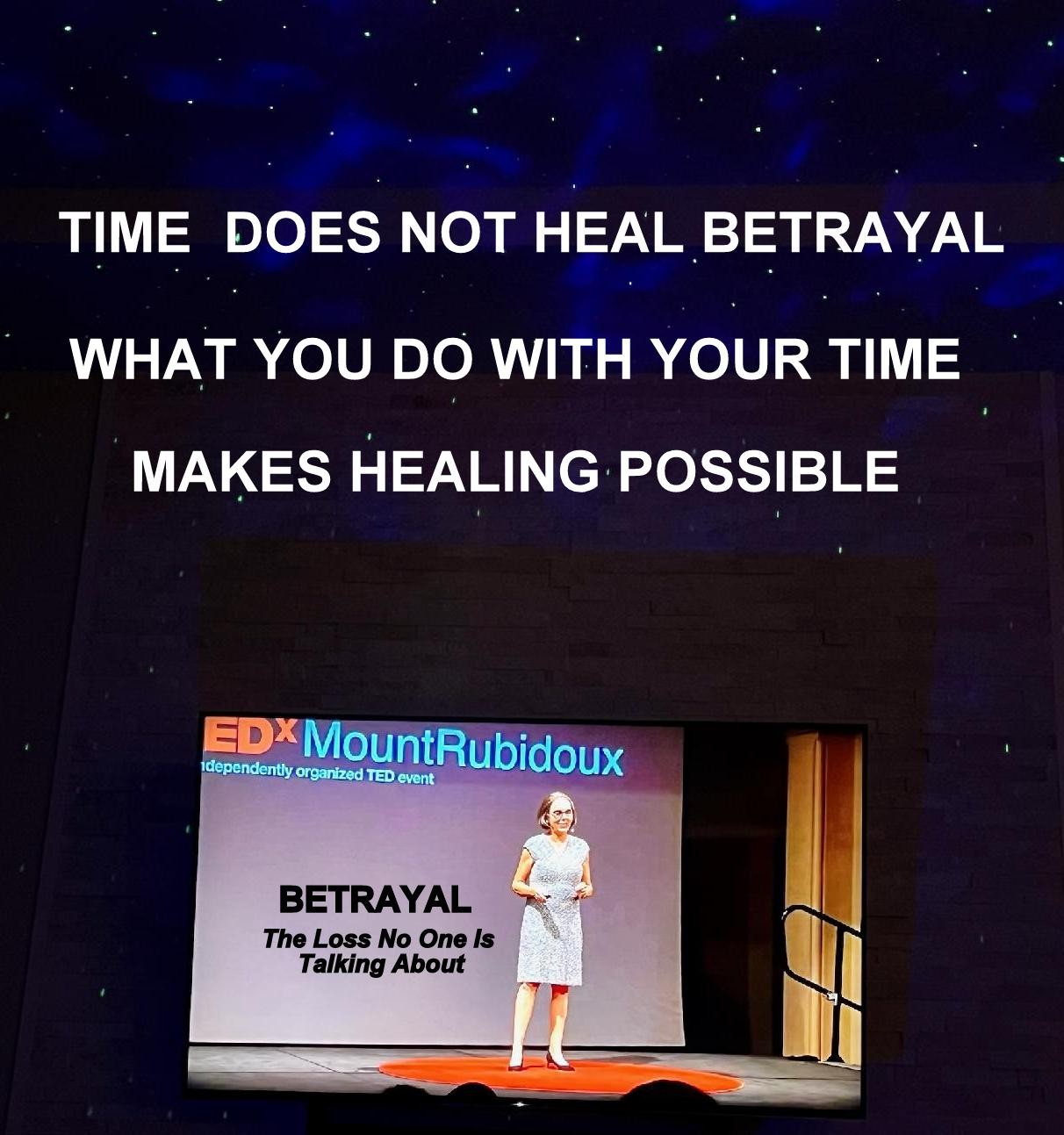
Awesome – so before we get into the rest of our questions, can you briefly introduce yourself to our readers.
I am Holli Kenley, MA, LMFT – thought leader in the field of psychology and the author of eleven recovery books – helping individuals bravely address their discomfort, dis-ease, and dissatisfaction in their lives so they can create healthy change, first within themselves and then in their relationships.
I hold a BA from University of California at Stanta Barbara. Graduating with High Honors from Champman University, I earned a Master’s Degree in Psychology with an emphasis in Marriage, Family, and Child Counseling. In addition to over 25 years as a California Licensed Marriage & Family Therapist, I also bring 30 years of experience as a California State Licensed Teacher.
What sets me apart from other therapists in my field is my groundbreaking work on betrayal. In addition, I have researched and presented new thinking around cyber bullying, relapse, sexual trauma, and our relationship with technology. I have been a six-time peer presenter at California Association of Marriage and Family Therapists’ Annual State Conferences and a Keynote speaker at college level clinical programs, state and national advocacy organizations, and educational institutions. I have been a guest on over 100 podcasts and on TV speaking on issues of wellness. I am a contributing author for CLEARlife (online magazine).
I am most proud of my TEDxMountRubidoux Talk BETRAYAL: THE LOSS NO ONE IS TALKING ABOUT. It is reaching thousands of individuals, giving them hope and healing from Betrayal Trauma.
Although I stay busy with my private practice in Southern California, I enjoy speaking to live audiences whenever I can! If my work and my words can help anyone “shift” into a healthier place of being, I am all in!
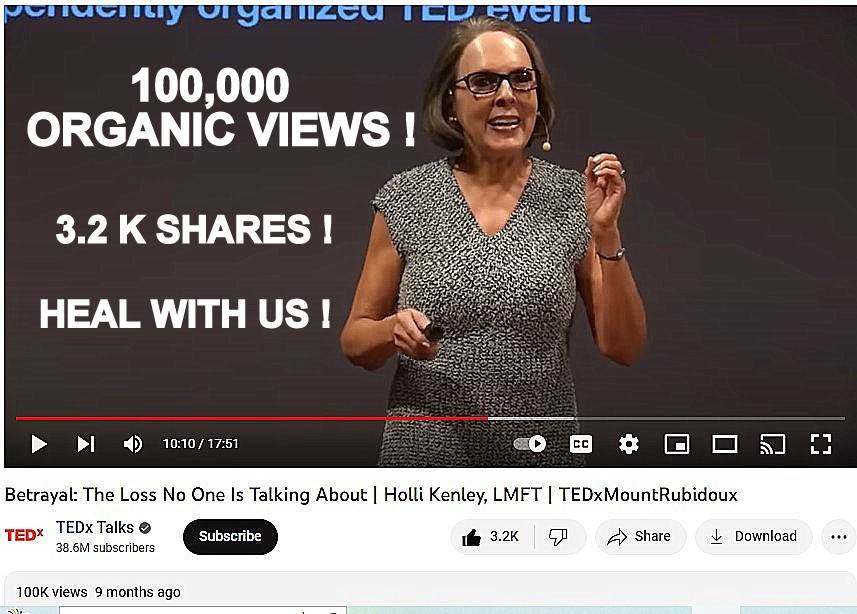
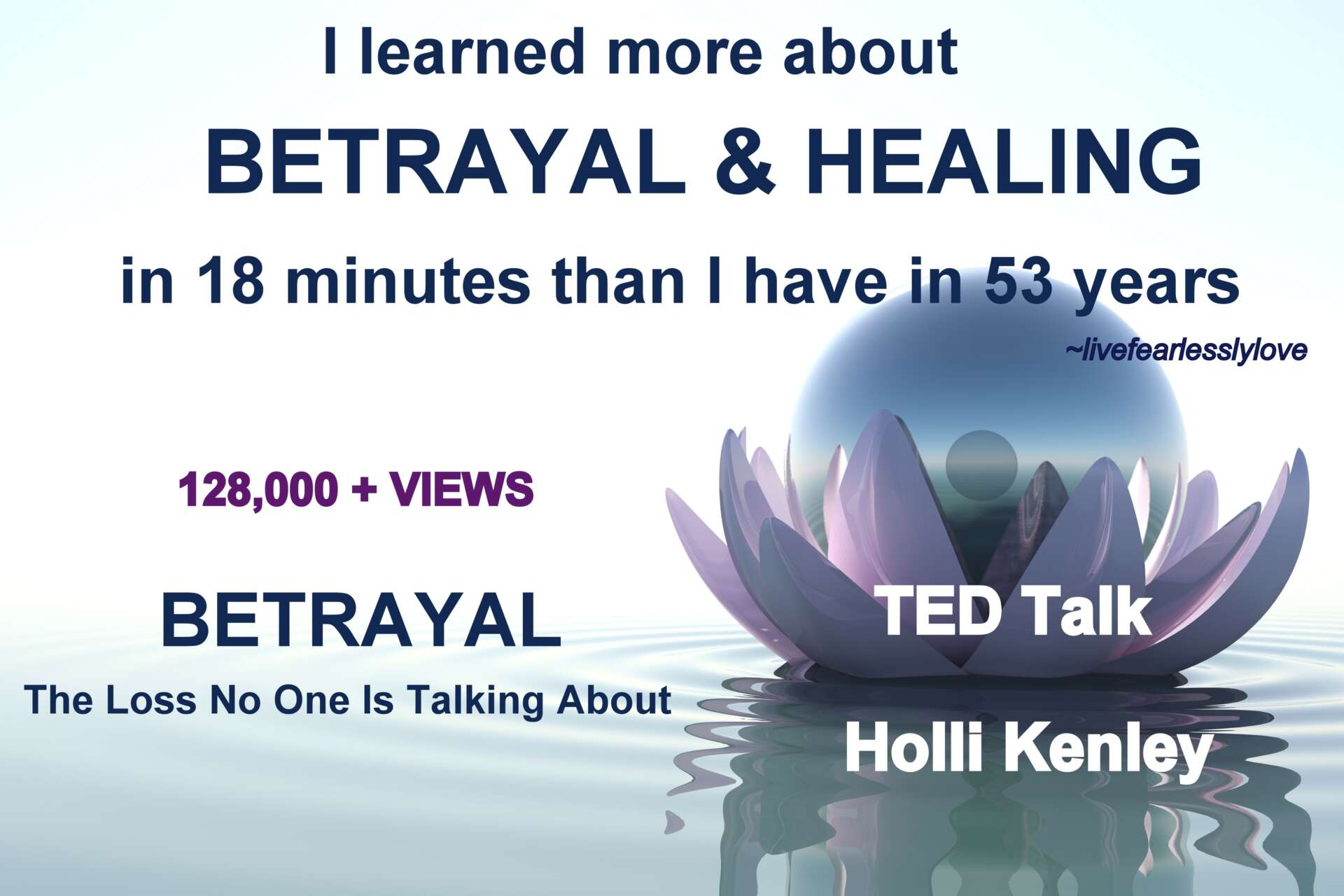
Can you share a story from your journey that illustrates your resilience?
In early 2014, I began planning my next betrayal project – a formal independent qualitative study entitled “Daughters Betrayed By Their Mothers: Moving From Brokenness To Wholeness.” My goal was to interview 5-10 adult females who were betrayed by their mothers, who embraced a recovery process or path, and who were leading well and whole lives.
Because of my previous work with clients and betrayal trauma, I knew this was going to be a sensitive topic of exploration. When betrayal injury is caused by a family member, clients carry a great deal of guilt and shame. Often the betrayers themselves shame their victims when the secretive nature of their betrayals is exposed. When we talk about our “mothers” and betrayal, for many this is a topic that is “not to spoken about.”
In seeking participants for this study, I would often share my intentions with colleagues at conferences or workshops. Some individuals were open and receptive. Others were angered and appalled. When friends or family would ask, “What are you working on now?” I disclosed a bit about my new project. It was difficult when I saw how their faces cringed with disappointment and even disgust. I was asked once, “How could you write such a thing?!”
When I think of resilience, I view it as a muscle. It is formed from pain. It is strengthened and stretched through our healing choices.
Yes, the negative feedback was hard to hear. But I leaned into how my other work on betrayal had positively impacted the lives of many individuals. And through those prior experiences, my muscle of resilience was strengthened with confidence and courage.
I moved forward. As I did, my resilience grew with it.
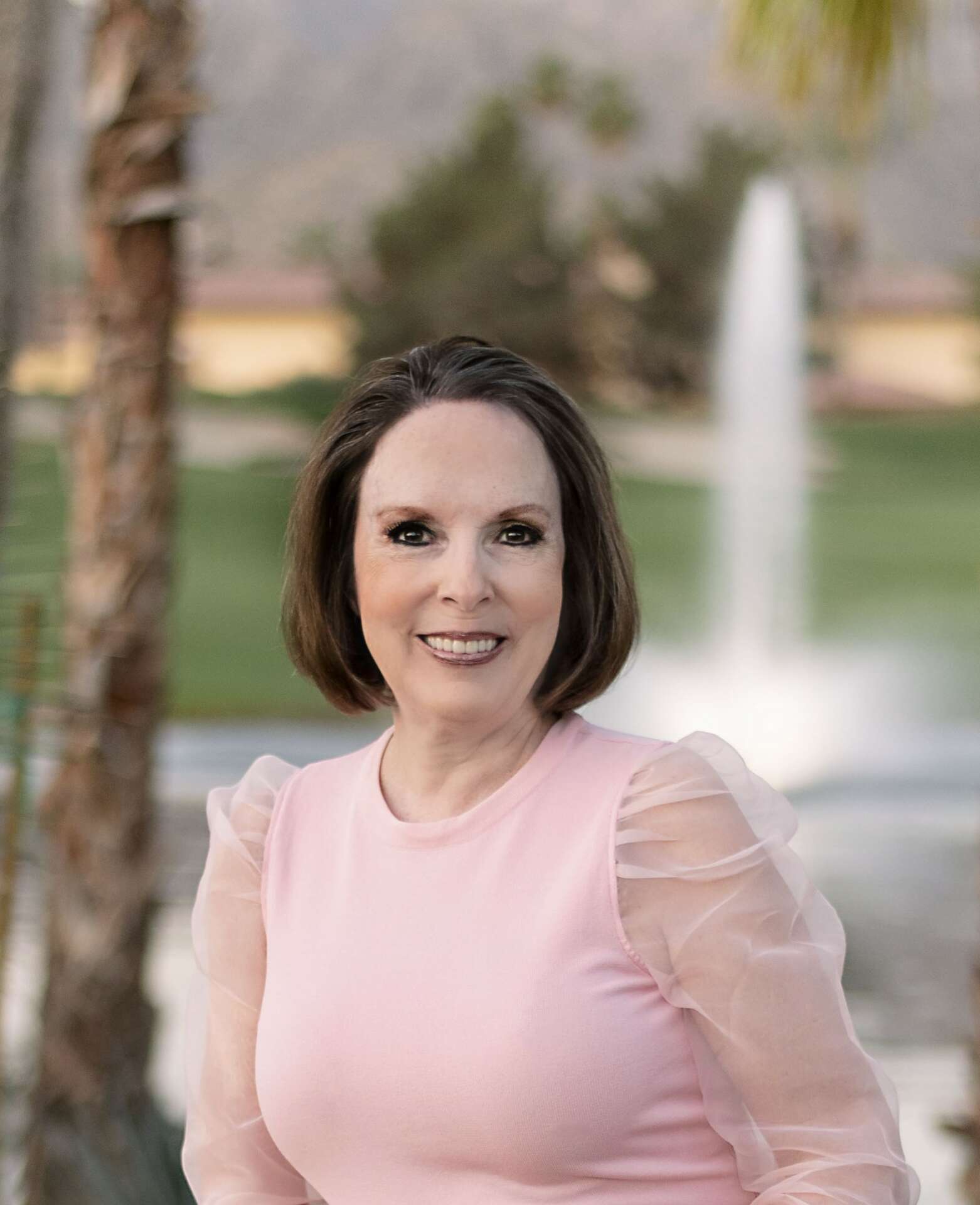
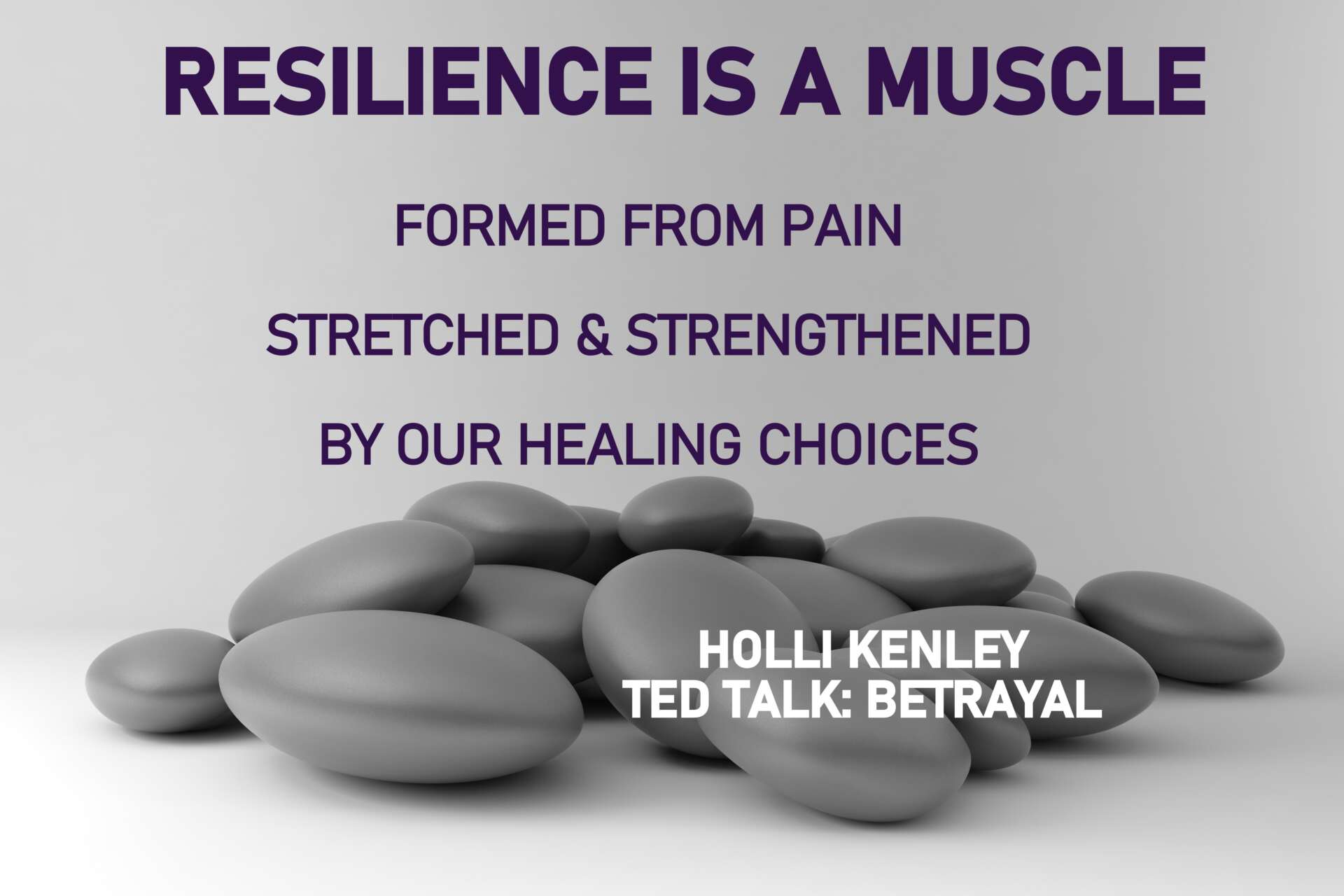
Learning and unlearning are both critical parts of growth – can you share a story of a time when you had to unlearn a lesson?
A belief that I held onto for most of my youth and young adult life is that if I just showed up and worked really hard, someone would come along and notice me. That someone would take me by the hand and propel my life into a richer, more nourishing, and healthier place of being.
This belief emanated from my childhood. I was raised in an alcoholic family system in the 50’s and 60’s. Being one of four daughters, I didn’t feel seen or heard. My home environment was critical and at times, chaotic. Often, it felt unsafe. I dreamed over and over again that someone would rescue me.
Although I struggled with depression and anxiety in high school, I worked hard with a goal of going away to college. Once at college, I continued to suffer with depression. Life was hard. My dreams of Prince Charming coming to take me away on a beautiful horse comforted me, but only for short spans of time.
Academically, I was successful. Obtaining my bachelors degree and a teaching credential, I was able to support myself. But in the wake of professional success, I tried to fill my voids by searching for a man – for that Prince. Instead, I left behind a trail of failed relationships.
In my late twenties, I entered therapy. This is where I began to unlearn that no one was going to save me. I had to save myself.
This lesson has served me well. I am where I am today because of it.
And, by the way. My Prince Charming didn’t rescue me. I found him.
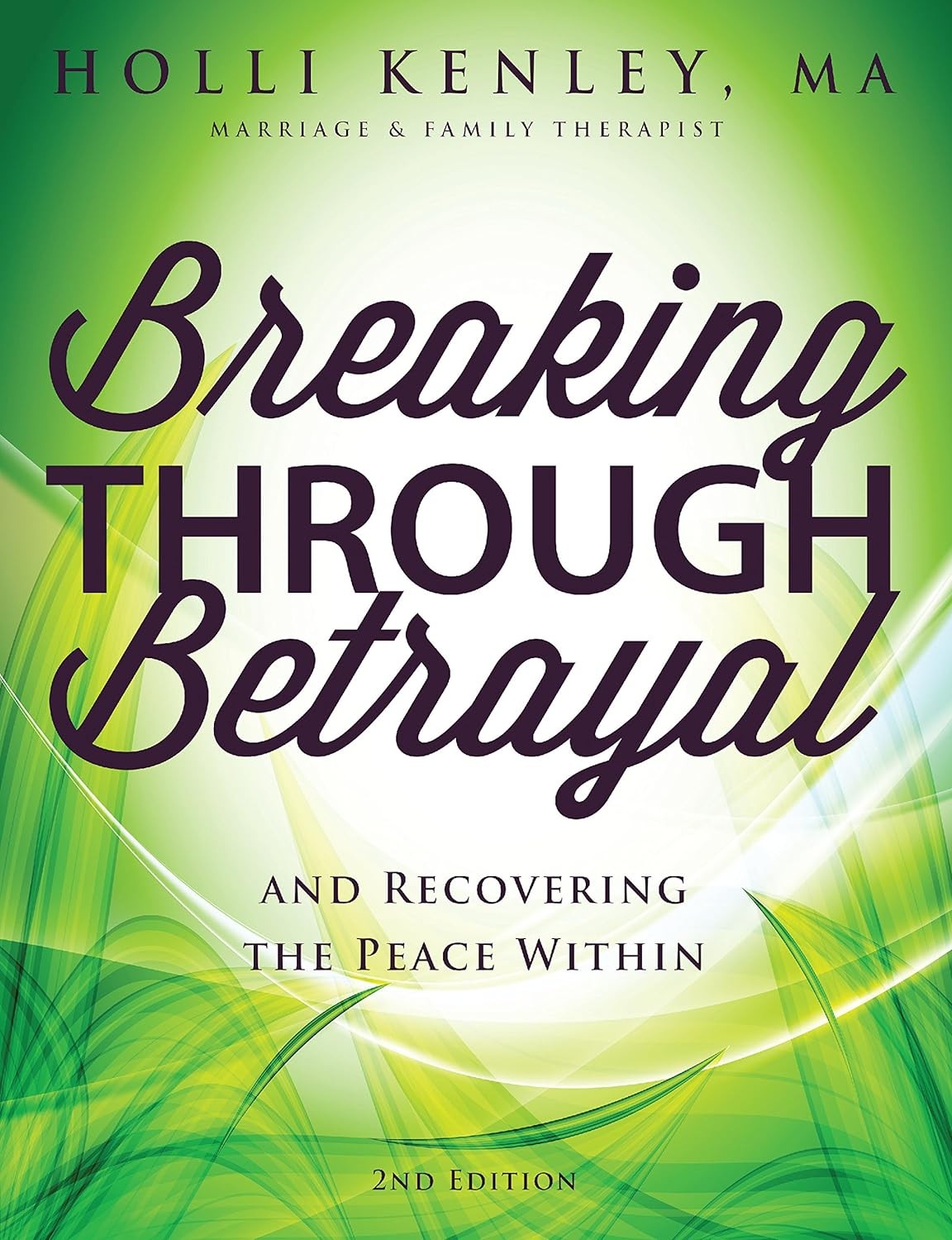
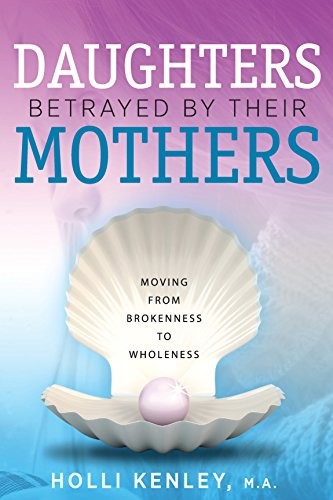
Contact Info:
- Website: https://www.hollikenley.com
- Instagram: https://www.instagram.com/hollikenley/?hl=en
- Facebook: https://www.facebook.com/hollikenley
- Linkedin: https://www.linkedin.com/in/hollikenley
- Twitter: https://www.twitter.com/hollikenley
- Other: Sample article from CLEARlife magazine https://clearlifeinc.com/self-worth/


